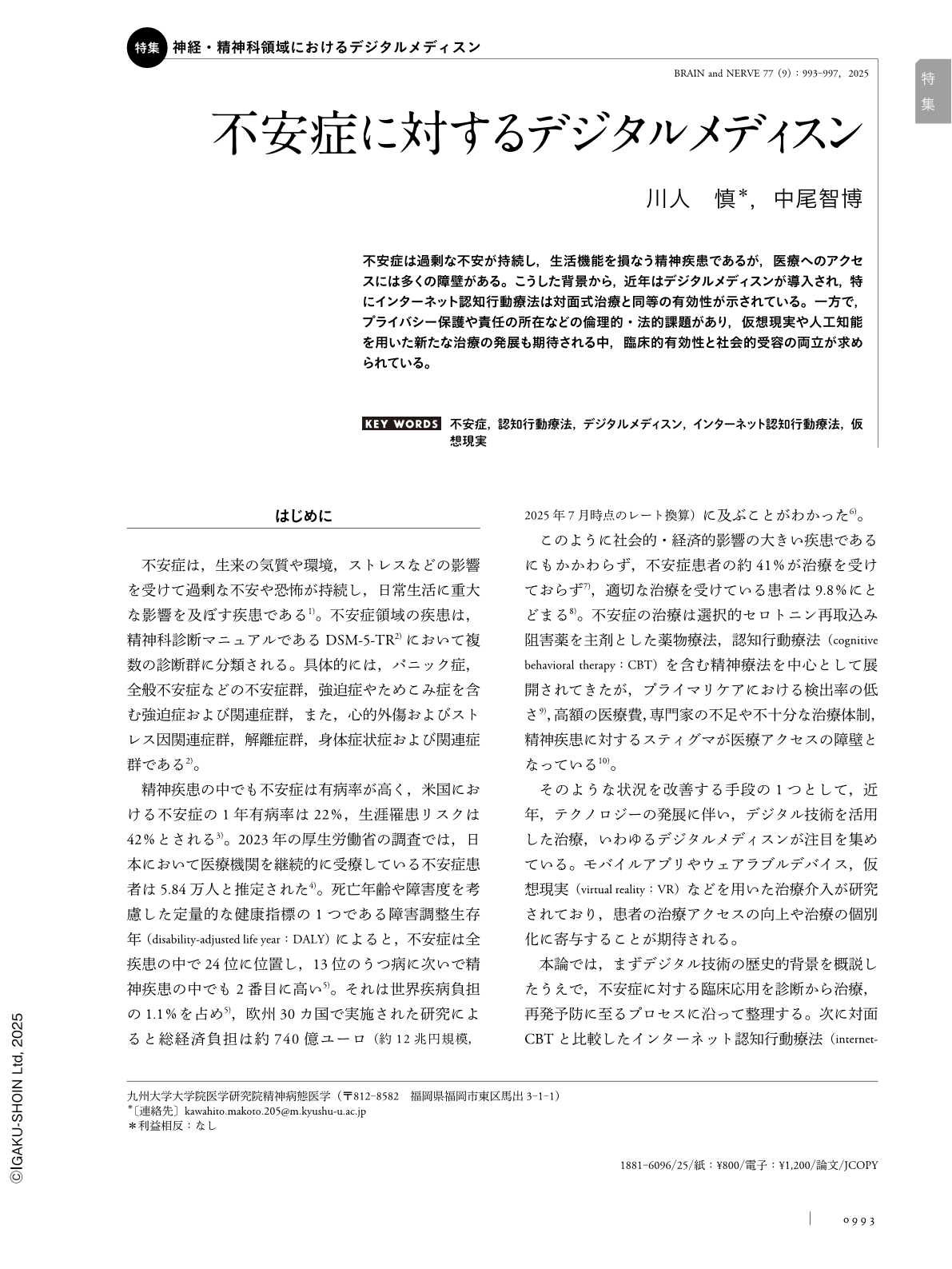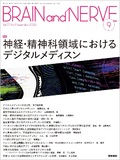Japanese
English
- 有料閲覧
- Abstract 文献概要
- 1ページ目 Look Inside
- 参考文献 Reference
不安症は過剰な不安が持続し,生活機能を損なう精神疾患であるが,医療へのアクセスには多くの障壁がある。こうした背景から,近年はデジタルメディスンが導入され,特にインターネット認知行動療法は対面式治療と同等の有効性が示されている。一方で,プライバシー保護や責任の所在などの倫理的・法的課題があり,仮想現実や人工知能を用いた新たな治療の発展も期待される中,臨床的有効性と社会的受容の両立が求められている。
Abstract
Anxiety disorders are among the most prevalent psychiatric conditions worldwide; however, a significant proportion of affected individuals do not receive adequate treatment because of barriers such as stigma, limited access to specialists, and geographical constraints. Recent advances in digital medicine have introduced new possibilities to address these challenges. This review summarizes the current clinical applications of digital interventions for anxiety disorders across diagnosis, treatment, and relapse prevention stages. Particular attention has been paid to internet-based cognitive behavioral therapy (ICBT), which has presented efficacy comparable to face-to-face CBT for conditions such as panic disorder, social anxiety disorder, and generalized anxiety disorder. However, its use has several limitations, including reduced effectiveness in obsessive-compulsive disorders and issues related to digital literacy. Furthermore, ethical and legal implications, such as those related to privacy protection, liability, and health equity, must be addressed to ensure safe and equitable implementation. Emerging technologies, including virtual reality and AI-based personalization, provide promising directions for future development. Furthermore, digital medicine holds substantial potential as a complementary tool for the treatment of anxiety disorders, but its widespread adoption requires ongoing empirical validation and the development of appropriate regulatory and clinical frameworks.

Copyright © 2025, Igaku-Shoin Ltd. All rights reserved.


